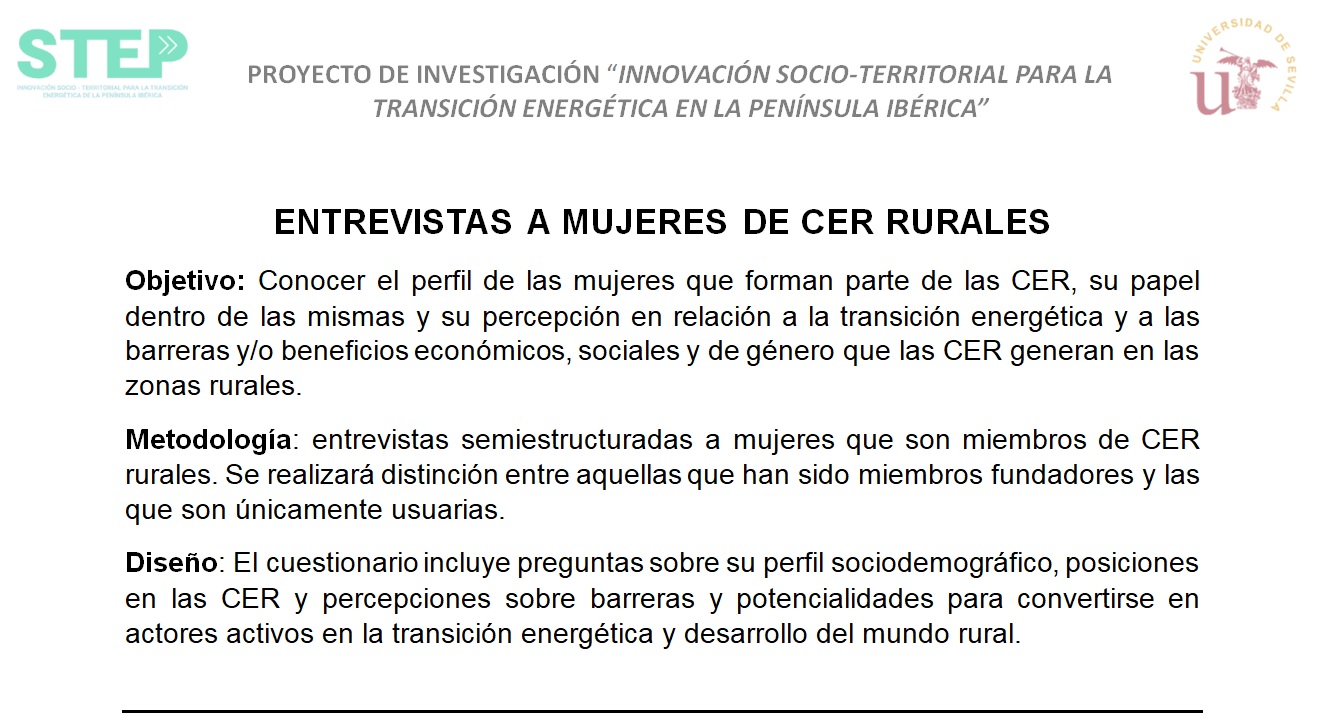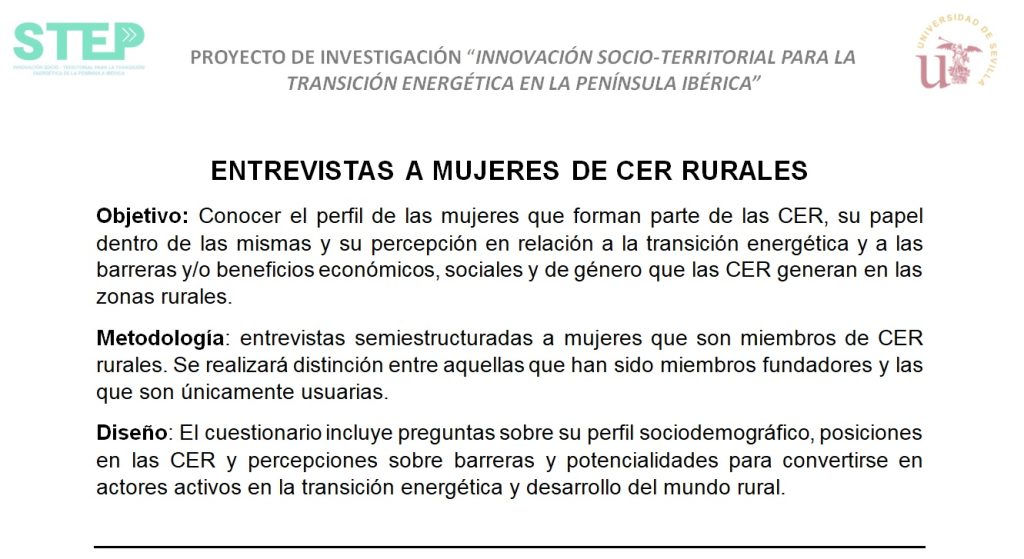
The STEP team, within Line V – Gender Governance for Energy Transition, has initiated a process of qualitative information gathering aimed at women who participate in the creation of Energy Communities and transition processes.
For this purpose, the technique of semi-structured interviews is applied to learn about experiences and points of view from the participation, in this first phase, of 11 women belonging to Rural and Urban Energy Communities, research groups on energy and social activism from ecofeminism.
The preliminary results are synthesized in the following ideas:
- The main socio-cultural benefit when talking about an Energetic Community is the collective formation of a safe space for women where they can express themselves, participate and be protagonists. This implies generating protocols where the gender perspective is fundamental and transversal to avoid any type of violation to their integrity.
- Traditionally, practices and care have been roles developed and imposed on women, so it is essential to take into account that the collective formation of a community, in this case an energetic community, implies combining their lives with new responsibilities and activities, towards effective practices of accompaniment, inclusion and participation.
- Leadership, decision making and positions of power in which women participate, must have an operational support from the community as a whole. The discourses on equality conditions should be supported by internal processes in the energy communities where an effective democratization of collective decisions is allowed.
- The gender perspective must be accompanied by a reading of living conditions from an intersectionality perspective, because vulnerabilities also exist in areas such as poverty, race, immigration, sexual orientation, age, among others, that cross the lives of women who are part of an Energy Community.
The Energy Transition is a process of changing the energy production model that has been established to mitigate the global climate crisis and meet the agenda of the 2030 and 2050 goals that seek decarbonization and energy efficiency, thus outlining effective actions to combat harmful impacts on the environment.
Without losing this perspective, climate justice, social justice, environmental justice and gender justice must be articulated as a compact mechanism aimed at integrating population clusters or energy communities in new eco-cultural ways to address climate change.


